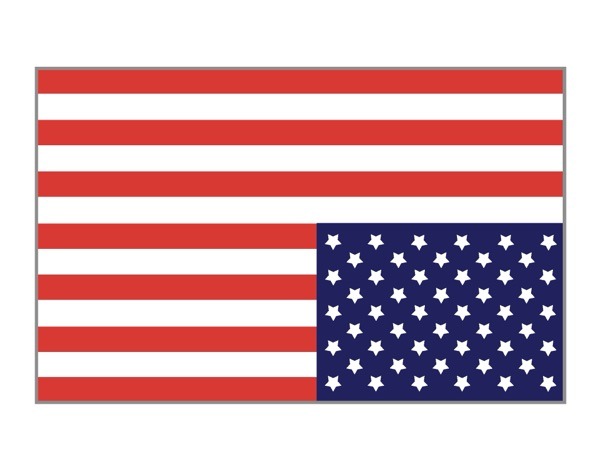In a move that strikes at the heart of America’s constitutional system, former President Donald Trump is once again demonstrating his disregard for the separation of powers. His administration’s recent budgetary actions, which have led to massive job losses at key federal agencies—including the Hanford Nuclear Reservation, the U.S. Forest Service, and the Army Corps of Engineers—are not just policy decisions. They represent an unconstitutional seizure of congressional authority, violating the Appropriations Clause of the U.S. Constitution. The power of the purse belongs solely to Congress, and Trump’s overreach demands an immediate legal response.
The Constitution is explicit in its allocation of powers. Article I, Section 9, Clause 7 states that “No Money shall be drawn from the Treasury, but in Consequence of Appropriations made by Law.” This provision ensures that the executive branch cannot unilaterally decide how federal funds are spent. Yet, Trump has done just that—redirecting, withholding, and cutting funds without congressional approval, effectively overriding the decisions of elected lawmakers. The impact has been devastating, with thousands of jobs lost in Washington State alone, undermining vital infrastructure and environmental protections.
Perhaps even more alarming is the complicity of elected officials like Michael Baumgartner, who have effectively surrendered their constitutional authority to Trump. Baumgartner, who holds a legislative role in Washington State, has abdicated his responsibility to represent his constituents by failing to push back against Trump’s unconstitutional actions. His inaction—and potential complicity—raises a serious legal question: Can a legislator lawfully cede their authority to the executive branch? The answer, based on constitutional precedent, is no.
History has shown that when presidents attempt to seize congressional powers, courts have intervened. In Youngstown Sheet & Tube Co. v. Sawyer (1952), the Supreme Court ruled against President Truman when he tried to seize control of steel mills without congressional authorization. The ruling reinforced that presidential power is not unlimited—especially when it conflicts with Congress’s explicit constitutional authority. Trump’s actions are arguably even more egregious, as they directly undermine the livelihoods of thousands of American workers.
This is precisely why a class-action lawsuit must be filed. The people of Washington State—and other affected regions—have suffered concrete harm due to Trump’s unconstitutional maneuvers. Workers who lost jobs at Hanford, the Forest Service, and the Army Corps should be able to seek legal redress. A lawsuit would not only aim to restore lost jobs but also set a crucial legal precedent: presidents cannot nullify Congress’s budgetary decisions at will.
Moreover, Baumgartner himself must be held accountable. By failing to act—or worse, by endorsing Trump’s executive overreach—he has violated the constitutional trust placed in him by his constituents. Elected officials do not have the authority to transfer their legislative powers to the executive branch. This is not only a betrayal of democratic principles but a potential violation of their oath to uphold the Constitution. A lawsuit should name Baumgartner as a co-defendant, making clear that both those who seize power and those who enable them will be held accountable.
Beyond legal action, this moment demands a political awakening. If left unchecked, Trump’s actions could set a dangerous precedent, where future presidents feel emboldened to ignore Congress entirely. Today, it’s budgetary control. Tomorrow, it could be even more fundamental rights. Americans must recognize that separation of powers is not just a theoretical concept—it directly impacts lives, jobs, and communities.
We have seen time and again that public pressure, combined with legal action, can force change. Trump has lost multiple court battles in the past, including over his attempted budgetary reallocation for the border wall. If the courts blocked him then, they can do so again. It starts with building a coalition of affected workers, legal experts, and advocacy groups to challenge this unconstitutional power grab in court.
To move forward, affected workers should begin organizing immediately. Legal experts and advocacy groups such as Public Citizen, CREW, and constitutional law scholars should be consulted to draft a solid case. Additionally, Washington State residents must demand accountability from Baumgartner, pressuring him to either fight for his constituents or resign. If legal avenues fail, political consequences must follow.
This is not just about Trump. This is about whether America remains a constitutional democracy where no leader—past or present—can override the rule of law. A lawsuit against Trump and Baumgartner would send a clear message: we will not stand by while our elected representatives surrender our democracy to executive overreach. The time to act is now.
Incorporating legal action into this challenge is critical because it would force the Supreme Court to either reign in Trump or admit that the Constitution no longer matters. If the Court allows this blatant power grab to stand, it will signal a dangerous precedent where the executive branch can override the will of Congress without consequence. History has shown us that constitutional principles must be defended—if not, the very foundation of American democracy could be at risk. This legal challenge is not just about one person’s power, but the future of the Republic.





